Review: THE LAST NIGHT OF BALLYHOO Is a Delicious Knish Served with Sweet Tea at South City Theatre
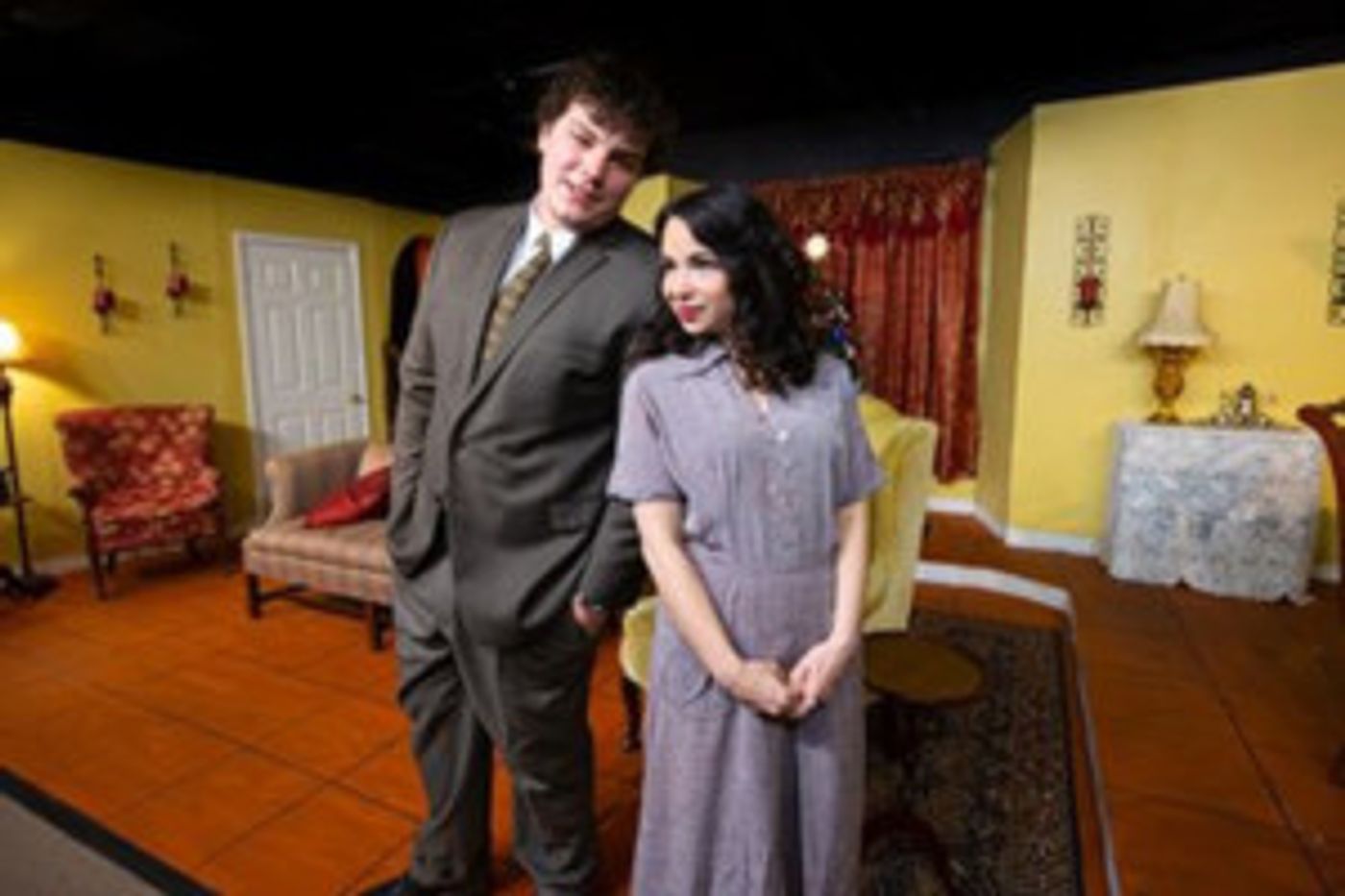
The class structure of us vs. them is hardly a new dynamic of human nature. The rich and the poor, the haves and the have-nots. During the late 1930's ripples created by financial wealth allowed some Jews to so call "pass" in society due to an elevated social status. Reaching for the American dream while adjusting to living under this ignorance, fear, and prejudice are exposed by Alfred Uhry's "The Last Night of Ballyhoo" at South City Theatre. This Tony award winning play is a touching, relatable, and revealing look at the cost of acceptance. The story peels back the layers to expose the complicated dynamics of a Jewish American family living in Atlanta in the 1930's.
Urhy's southern upbringing is easily discovered in both of his full length plays "Ballyhoo" and "Driving Miss Daisy." Uhry taps his background of growing up Jewish in the deep South. Uhry's strong writing is free from negative stereotypical comedy tropes of Jewish people. The complex relationships are a mirror to the audience. This connection to realism is what makes this play so appealing. Even if you don't attend Temple, you will still find familiar notes of embracing acceptance, countering ignorance, and desperately trying to fit your square self into a round hole. Loving who you really are is a take away that "Ballyhoo" strongly provides.
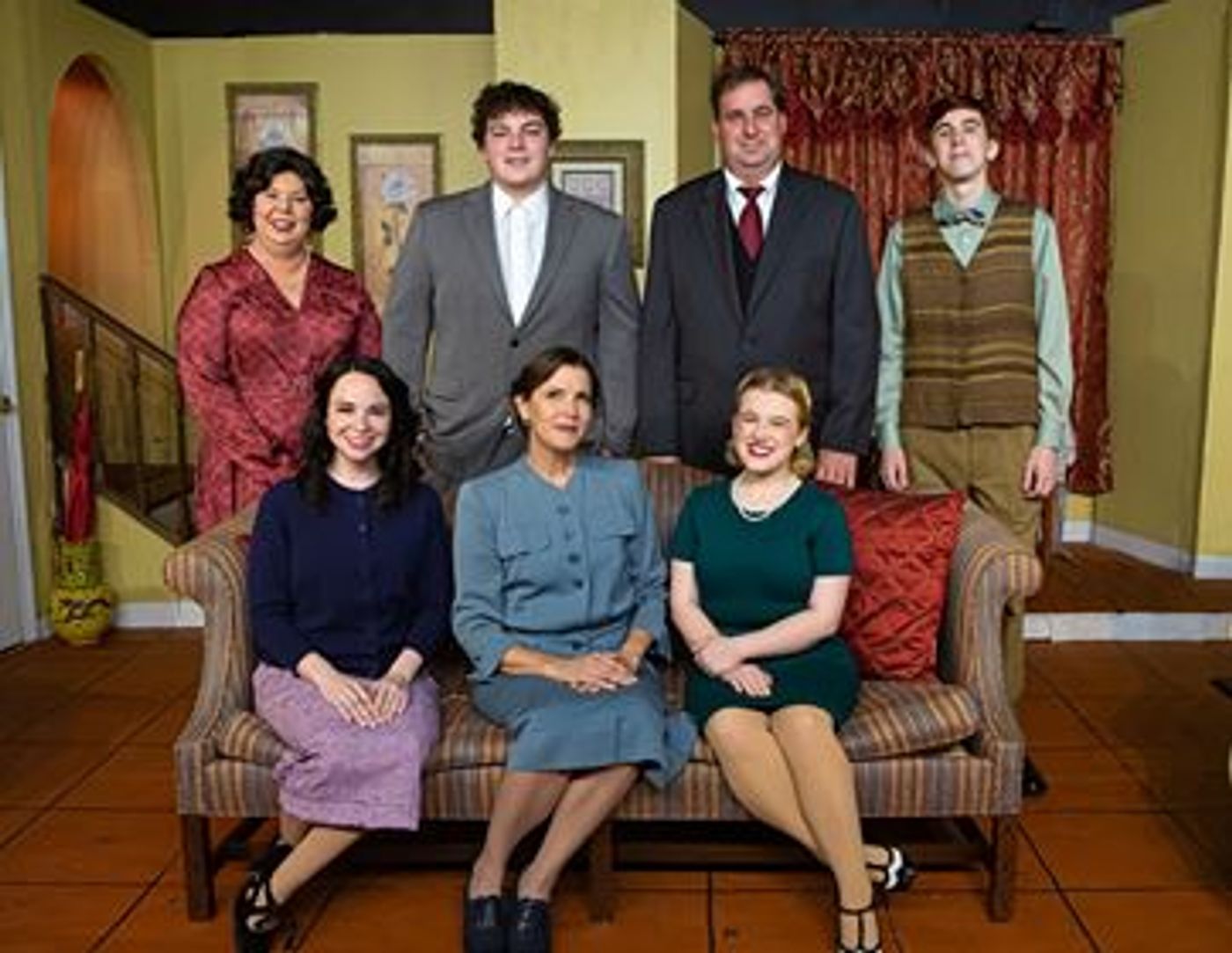
The play opens in the upscale home of the Freitag family in Atlanta, Georgia. The Jewish family is provided for by their family's bedding business run by Adolph Freitag (Todd Ponder). Living under the roof is his tightly wound widowed sister Boo (Lori Edwards) and her flighty 22-year old daughter Lala (Bailey Glasgow), and widowed sister-in-law Reba Freitag (Donna Williamson) whose daughter Sunny (Katie Milligan) is off at Wellesley College. The family has spent years living under the umbrella and adopting the culture of southern Christian society. Yes, even down to displaying a Christmas tree with all the trimmings.
The reports of the growing threat from Germany takes second position to the hoopla and preparation for the biggest social event of the year, Ballyhoo. This glamorous ball for the young southern Jewish high society set is a greatly anticipated. Not only for Atlanta, but from all over the south. It's fitting that Ballyhoo coincides with the release of the iconic southern film "Gone With The Wind." Milt Juleps for everyone.
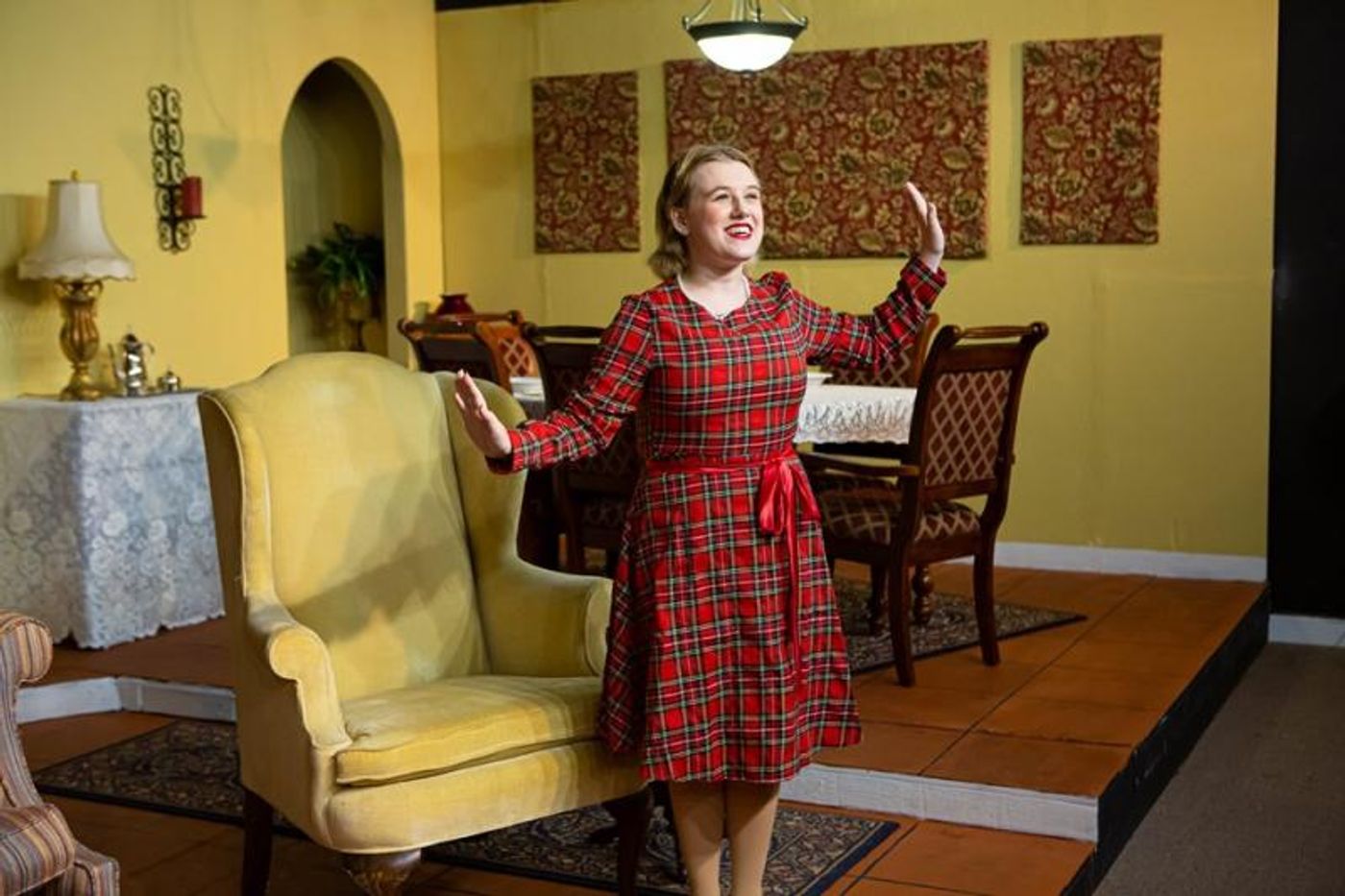
Young and flighty Lala Levy (Bailey Glasgow) has left college up north due to the bullying from anti-Semitic peers. Lala's kinky hair, loud voice and features deemed to be stereotypically " Jewish" made her an easy target for the ignorant students. Now that she is all to comfortably back home, her lingering passion has turned to idol fanfare of the Atlanta premiere of "Gone With the Wind." Her flighty passion has never stayed on one course. She is a young woman lost and trying to find her way.
Boo (Lori Edwards) is a helicopter mom with much frustration. She frustrated in feeling as if her brothers and her daughter are not taking her seriously. Her disappointment and domineering over Lala (Glasgow) builds in each scene. The heated mother/daughter interactions between Boo (Edwards) and Lala (Glasgow) are familiar in tone and context. The raw frustration both actresses provide deliver truth in their scenes. Additional tension radiates from Lala's rivalry with her "prettier and smarter" cousin Sunny (Katie Milligan).
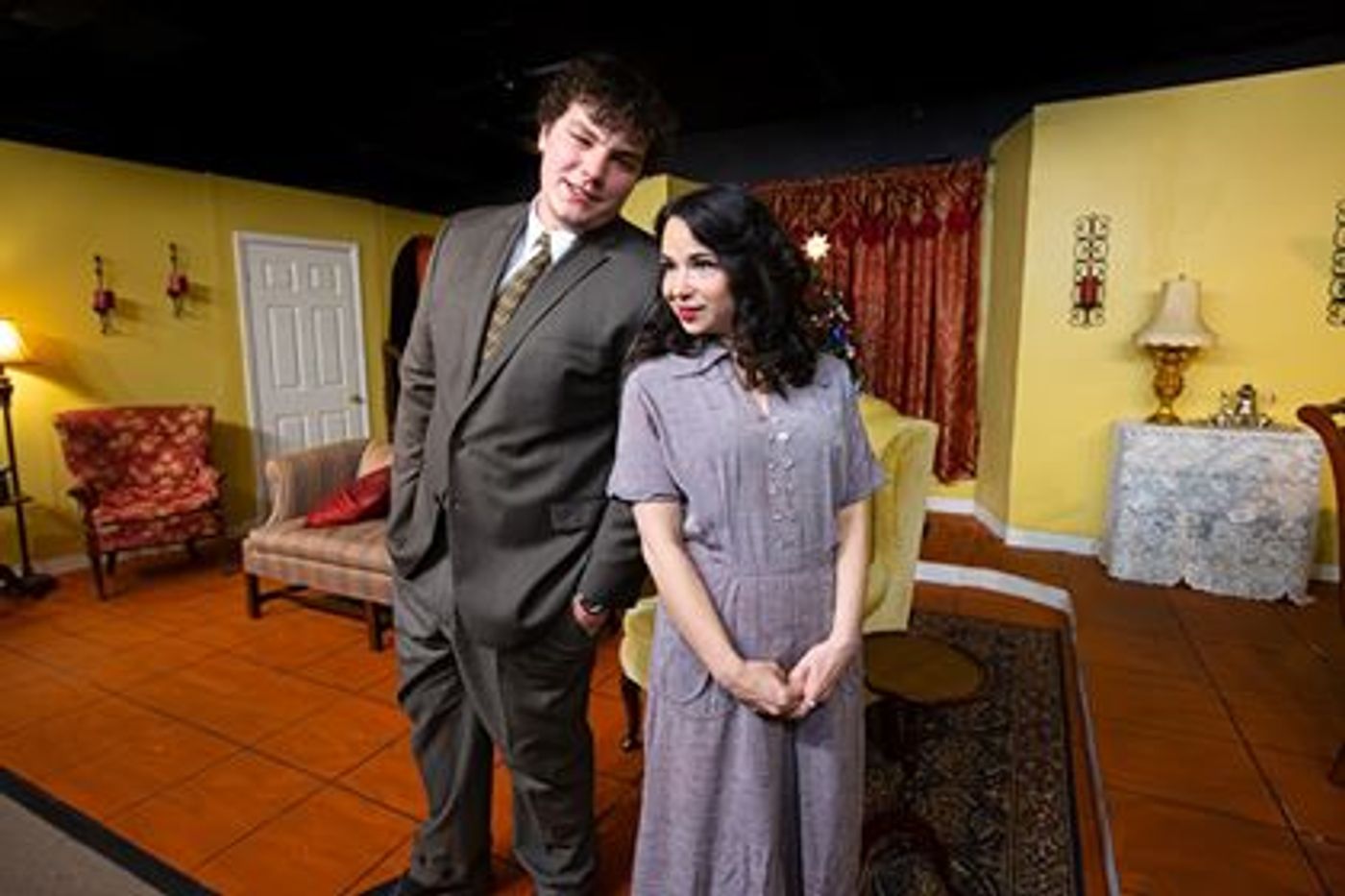
Enter Joe Farkas (Jason Bearden), recent transfer at the family bedding company whose Brooklyn brogue and prideful Jewish roots quickly catches Sunny's attention. His quick wit soon wins her over. The more time they spend together, the more Joe (Bearden) is troubled to see how far the family diminishes their Jewish culture in order to fit in.
Uhry's writing puts a magnifying glass over Jewish self-hatred and bigotry toward other Jews. The German Jews saw those from other Eastern European counterparts as being below them. Uhry's observations create an insightful look into divisiveness among American Jews. Director Lisa Ponder structures an engaging family portrait, including many funny moments and emotional reactions.
Bailey Glasgow gives the bright-eyed Lala a warmth and sassy spirit. Her character is a firecracker of ranging emotion. Glasgow lights her fuse with honest motivation. I asked her if taking on the role was as effortless as it seemed? "I am that sassy in real life." She says while laughing. "Lala has always lived under her mother's thumb and always done what other people told her. I love how much she really believes in herself. Even though she is a dreamer who does not have any fully flushed out plans. (Laughs) which is kind of me. But I try to be a bit more realistic at least."
Jason Bearden has leading man charisma and an impressive range in the role of the New Yorker Joe Farkas. This is a ripe role with layers of conflict. The relatability in his delivery is solid. Much like the story itself. Bearden shares, "That is what makes the play so special. Even though it was written in the 30's, it's still just as relevant as it is today. It doesn't matter who it is. You can probably relate to at least one character in the play."
Donna Williamson shines with comical gold as the hilarious Reba. Her seamless delivery of the family loon is a show highlight. She skillfully plays Reba's eccentricities and a tender maternal heart. Williamson shares, "I love Reba, she's such a goofy character. Everybody has a Reba in their family." She goes on to quote the great southern icon Julia Sugarbaker "This is the south. We don't hide our crazy people up in the attic. We bring them right down into the living room and show them off. " I am a little sarcastic and a little snarky." I asked Williamson if it was hard for her to get into such a crazy character? As if on cue, Williamson and the entire cast answer in unison, a boisterous "NO!" The cast breaks out into laughter. You can tell the chemistry, trust and admiration they share backstage translates into the strong performance.
.jpg?format=auto&width=1400)
Lori Edwards gives Boo a signature comical crankiness in personality and delivery."She is the biggest character I have ever had. She's just so much fun to play. Boo is free to say the things you just don't say." Edwards portrayal is politely uppity with no disillusions of grandeur in the family. "It is such a nice, happy family picture until Boo and Lala get on stage together. (Laughs) Then it is bring on the dysfunction!"
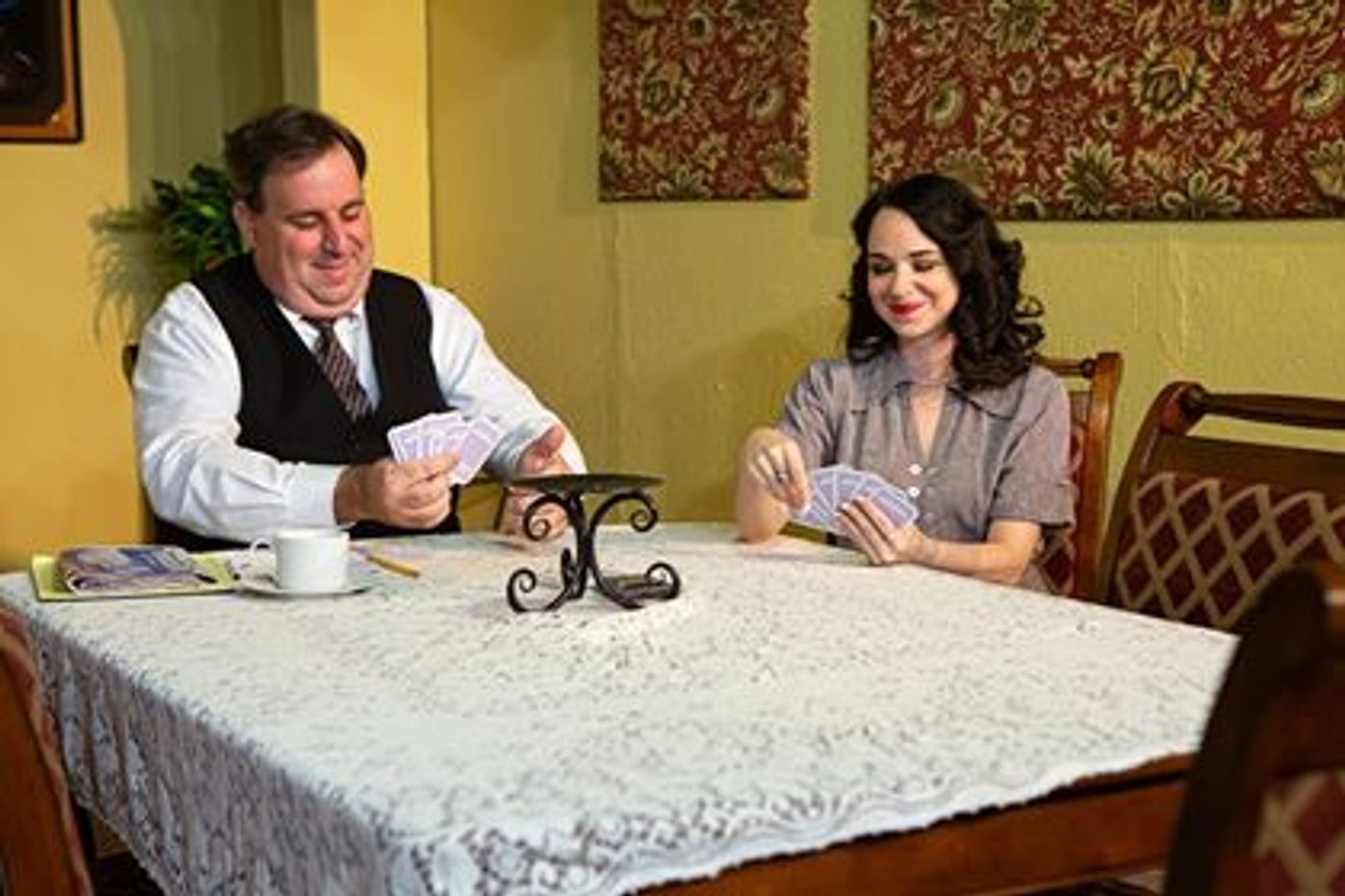
Todd Ponder give Adolph a huggable cartoonish presence. His life in a house full of women is delightfully layered. "I grew up in a house with a Mom and a sister so I could related to this family dynamic. That sibling rivalry was very familiar to me. She would get her way sometimes and Ill get mine. The spirit of compromise is alive in the house." For Adolph's delightful comical nuances, Ponder pulled inspiration from his late father into the role. "The snoring while sleeping in the recliner is a bit of a tribute to my Dad."
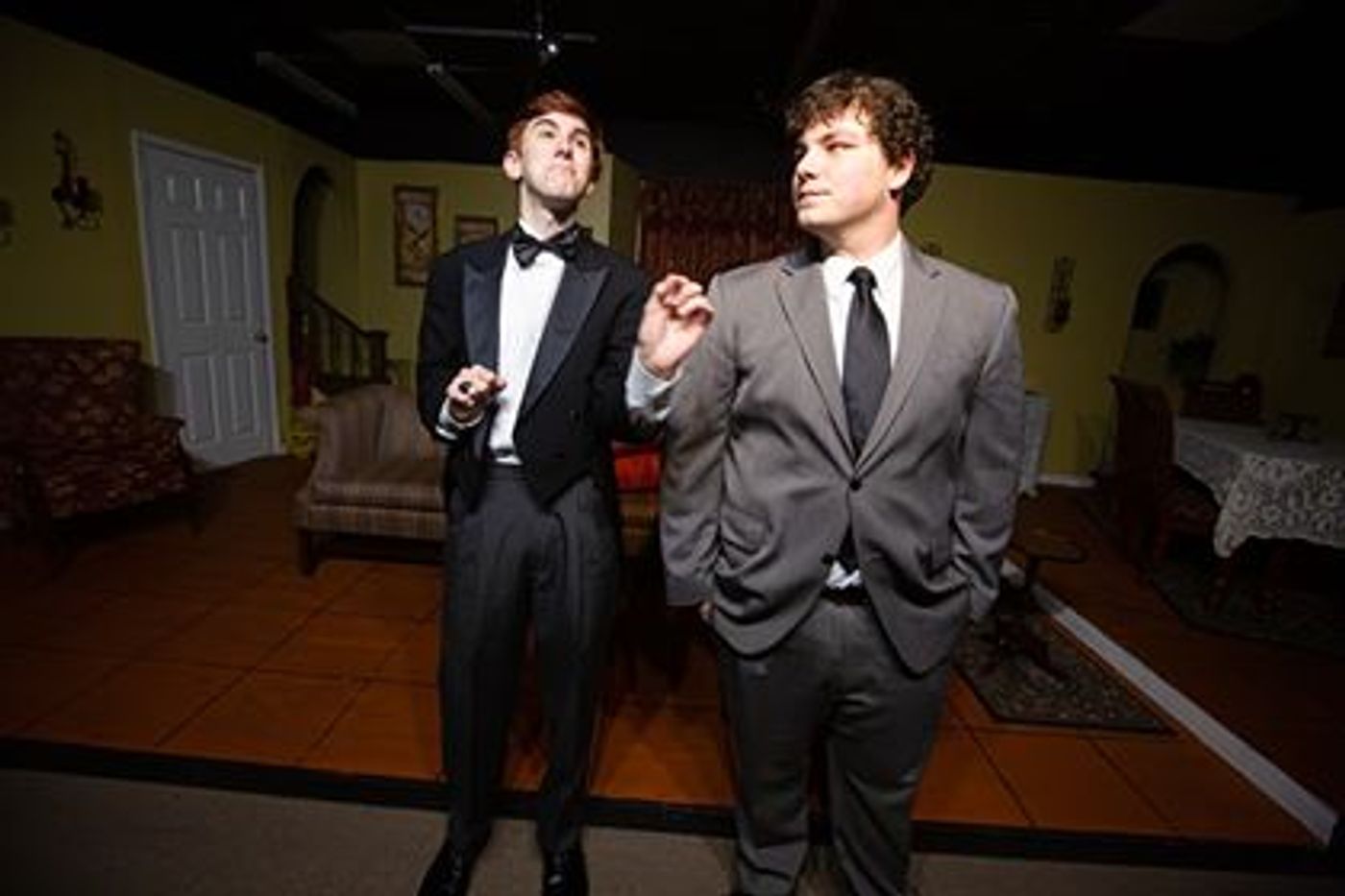
Ryan Gerrells gives life to the comically toxic Peachy Weil. He is Lala's suitor who is a self-absorbed odd ball with a comically sarcastic tongue. His performance of this abrasive young man is structured with hilarious tones. I was asked Gerrells how he skated the line of being charming and and a**hole? "When I first started working on the role I was leaning toward being more charming. As we progresses our director Lisa wanted more a**hole and pushed me to where we needed to be." The cast gleefully shared how the director had Ryan dress up at one rehearsal like Zeus to spark that flame of his better than thou mentality. The techniques worked for Gerrells delivery of the self-centered wretch brings a visceral reaction.
Katie Milligan wows with a bright stage presence and attention to detail of the conflicted Sunny. "I did a lot of research into inter-religion relations of the Roman Orthodox and the German Jews during that time. I wanted to see how would Sunny live in this hypocrisy of living in prejudice. When in the background Hitler is killing off all Jews regardless of what division you are in. She doesn't realize her discrimination at first. She grows into recognizing that the "Jew hater" talk she's become accustomed to is not ok. When Joe arrives into her life and challenges her, she was able to grow from it. Realizing what she was missing was her actual connection to Judaism."
Tony McGuire's crisp period costumes take you right back to the 30's. Mike Gerrells and Donna Williamson's beautiful set design provides a familiar home that you feel as if you have been in before. Director Lisa Ponder steers a gifted cast. She created an environment where these talented actors grew into a tightly connected cast. The performance shines from the hard work. I asked Ponder to share what led to South City choosing this play. "I was actually looking to do the Diary of Anne Frank. But when I reread "Ballyhoo" I found a beautiful opportunity to tell a historical story though a time line. The "Ballyhoo" script deals specifically with inter-racial discrimination in 1939. As opposed to "The Diary of Anne Frank" that deals with the holocaust's complete racial destruction in 1942 . The idea of telling a story between these two events was very appealing. In this place you've got this Jewish family in the south. They have society, and they have the country club and they're not accepted. But over in Europe already, just being any bit of Jewish you were being hauled off to work in camps. Then within four months after "Ballyhoo" ends, people are starting to be hauled away to be killed." Ponder sighs in reflection. "The juxtaposition to the stupidity of you and I were the same. But yet I'm better than you?"
"The Last Night of Ballyhoo" at South City Theatre is a compelling performance with many moments of blissful laughter and thought provoking commentary on acceptance.
The Last Night of Ballyhoo
By Alfred Uhry
Directed by Lisa Ponder
June 7-9, 13-16 - Thur, Fri, Sat 7:30p
June 9 & 16 - Sunday Matinees 2p
South City Theatre
2969 Pelham Parkway J
Pelham, AL 35124
Tickets
Call (205) -621-2128 or visit southcitytheatre.com
Photo Credit: Steven Ross
Reader Reviews
Videos

